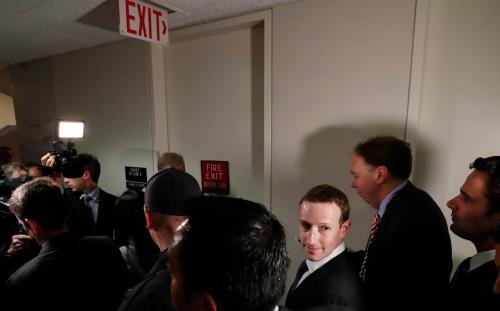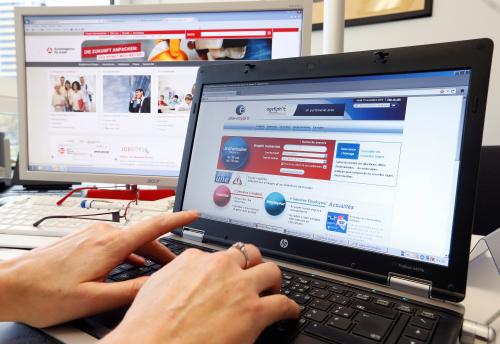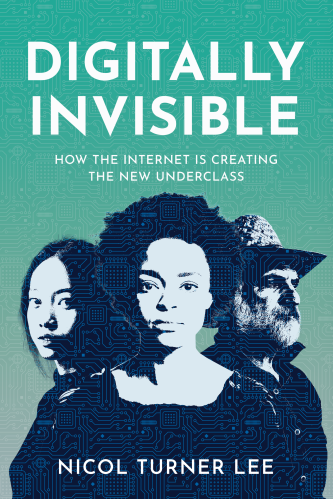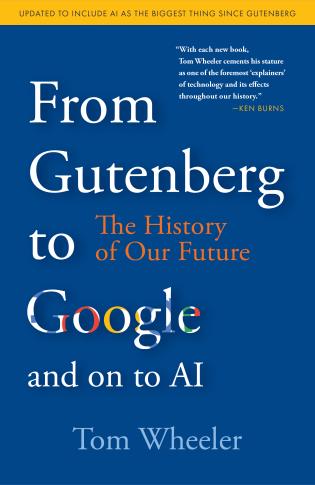It’s a start, a significant start: “The Internet needs new rules,” Facebook founder and CEO Mark Zuckerberg wrote in the Washington Post. That a Silicon Valley leader would step forward and call for legislation and regulation is a noteworthy act of leadership that should not go unrecognized or unappreciated. The four proposals he makes open the door to a meaningful discussion about the effects of internet capitalism. Now what is needed is a similar look at the issues underlying the market dislocations caused by a handful of internet companies.
Mr. Zuckerberg’s first proposal repudiates his company’s previous position that Facebook does not make editorial decisions, but is simply a technology platform. Recognizing how Facebook does indeed make editorial decisions, he proposed “creating an independent body so people can appeal our decisions.” Such an ex post review shows sensitivity to the editorial decisionmaking of Facebook’s algorithms, but does not deal with the problem that many of those decisions are masked, hidden, and unknown.
When a traditional media outlet publishes or broadcasts, its editorial decisions are plain for all to see. Traditional media’s open editorial judgments are monitored by groups such as Accuracy in Media (on the right) and Fairness and Accuracy in Reporting (on the left). The decisions of Facebook’s algorithms are not open to such third-party assessment because they often are never seen other than by a small demographically-select target group.
Wael Ghonim and I have previously proposed a “public interest API” that would allow media monitoring groups to see what is going out of the Facebook algorithms in relation to the groups being targeted. An API—application programming interface—is simply how software talks to software. In this case, a public interest API would protect the sanctity of the editorial process, yet open its results for analysis just like traditional media.
Such output includes political advertisements. Mr. Zuckerberg’s proposal that online advertisers verify their identities is responsible. But it falls into the same trap as existing broadcast TV and radio attribution rules since the identification of the front organization sponsor does nothing to reveal who is really behind the ad. When the Russians used Facebook to target specific groups of Americans, they hid behind front organizations. According to Facebook’s searchable ad archive, the third-ranked ad, as of this writing, is “Concealed Online,” a group promoting concealed weapons whose website does not identify who is paying the bills. Not until the names of those funding an ad are known will it be possible to understand who is trying to deliver what influence.
Embracing GDPR
The fall-off-the-chair proposal in Mr. Zuckerberg’s article is his embrace of the European Union’s General Data Protection Rule (GDPR). It is a significant watershed, and will come as quite a surprise to the network and platform companies currently engaged in watering down any meaningful privacy legislation in this country. For instance, the GDPR requires informed consent from consumers for the use of their information. This includes opt-in (rather than opt-out) permission, the right to know what information is being collected (including from other sources), as well as the right to know how that information is being used. Perhaps most compelling when compared to Facebook’s business model is GDPR’s prohibition against coercive collection (i.e., “unless you provide this information, we won’t provide quality service”), and the requirement that an app collect and store only the minimal amount of data necessary to provide the service.
One of the requirements of the GDPR is Mr. Zuckerberg’s fourth proposal: data portability. Each consumer should have the right to move their information among providers. When portability was implemented for mobile phone numbers, the level of competition increased, and prices declined. Empowering the consumer with control over their own information will allow those consumers to vote with their data—including moving it to a competitive service. Of course (and unclarified in the article), portability must be true portability—i.e., the data leaves the Facebook database and all other databases with which it might have been shared.
Kudos to Mr. Zuckerberg. These suggestions are significant. His careful use of words, however, warrants further explanation. The language discussing political advertising and data portability talks about “regulation” and “legislation.” His discussion of privacy seeks a common “framework.” Oversight of content control apparently seeks some form of self-regulation. Congress should afford Mr. Zuckerberg the opportunity to further specify his proposals in public session.
The other side of the market
As significant as Mr. Zuckerberg’s proposals are, it is important to recognize they deal with the effects of internet commerce more than their causes: the business model of internet companies. Economists define that business model as a “two-sided market.” On one side, the companies collect the assets they sell on the other side. Each of those sides requires a set of behavioral rules, yet today the companies make those rules. On the collection side, consumers should have more control over their data. In his embrace of GDPR by name and in its entirety, Mr. Zuckerberg recognizes the importance of protecting consumer sovereignty over their own data.
It is the sell side of the market—where the money comes from—that Mr. Zuckerberg’s proposals ignore. The internet business model relies on companies like Facebook hoarding personal information in order to collect monopoly-based prices. It is this data bottleneck that is at the root of the digital companies’ power to dominate and control markets.
The internet companies enjoy high margins on the use of the data they collect because they have collected amazingly granular targeting information and use it as a weapon against competitors. Google and Facebook have captured 48% of local digital advertising, for instance, because they know more about each of us than even our neighbors and they keep that data from local competitors. The result is that advertisers pay too much and local outlets such as newspapers get too little. Meaningful reform would require the internet companies to cease their hoarding and open databases to competitors.
Technology analogs
We have seen this situation in new technology before: In the late 1980s, both cable television and direct satellite broadcasting were new, growing, and competitive industries. Through ownership and contract, however, cable television operators made it hard for the satellite companies to acquire the programming consumers wanted. In 1992, Congress required open access to the video content essential for satellite to become a viable competitor.
Open access for the data that the digital companies collect would have a similar salutary effect on competition. This does not necessarily mean it is free, but that it should no longer be hoarded for the purpose of controlling markets. An important part of such an open data policy, of course, would be consumer privacy protections and accompanying oversight.
So, hooray for Mark Zuckerberg! Like all pioneers, he not only started a revolution, but also made the rules for that revolution. Now he has stepped forward to recognize what few of the other digital giants have: that company-made rules are not always in the public interest. But Mr. Zuckerberg has only made proposals to deal with one part of the two-sided market that is internet capitalism. Absent rules to address the economic bottleneck that he and his digital colleagues have over an open and competitive marketplace, it will be only a partial solution.
Facebook is a donor to the Brookings Institution. The findings, interpretations, and conclusions posted in this piece are solely those of the author and not influenced by any donation.
The Brookings Institution is committed to quality, independence, and impact.
We are supported by a diverse array of funders. In line with our values and policies, each Brookings publication represents the sole views of its author(s).









Commentary
Mark Zuckerberg’s call for internet rules only goes part way
April 3, 2019